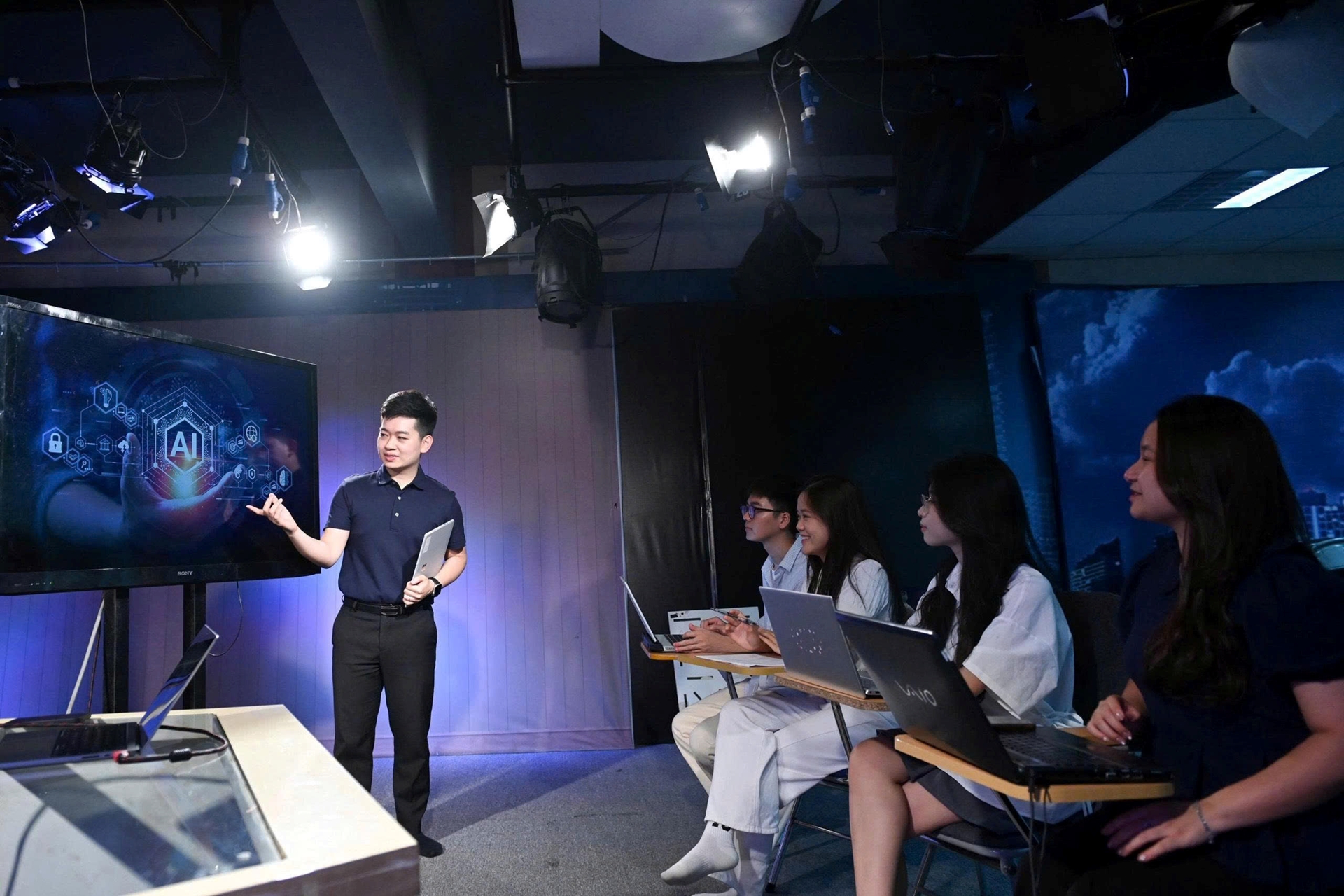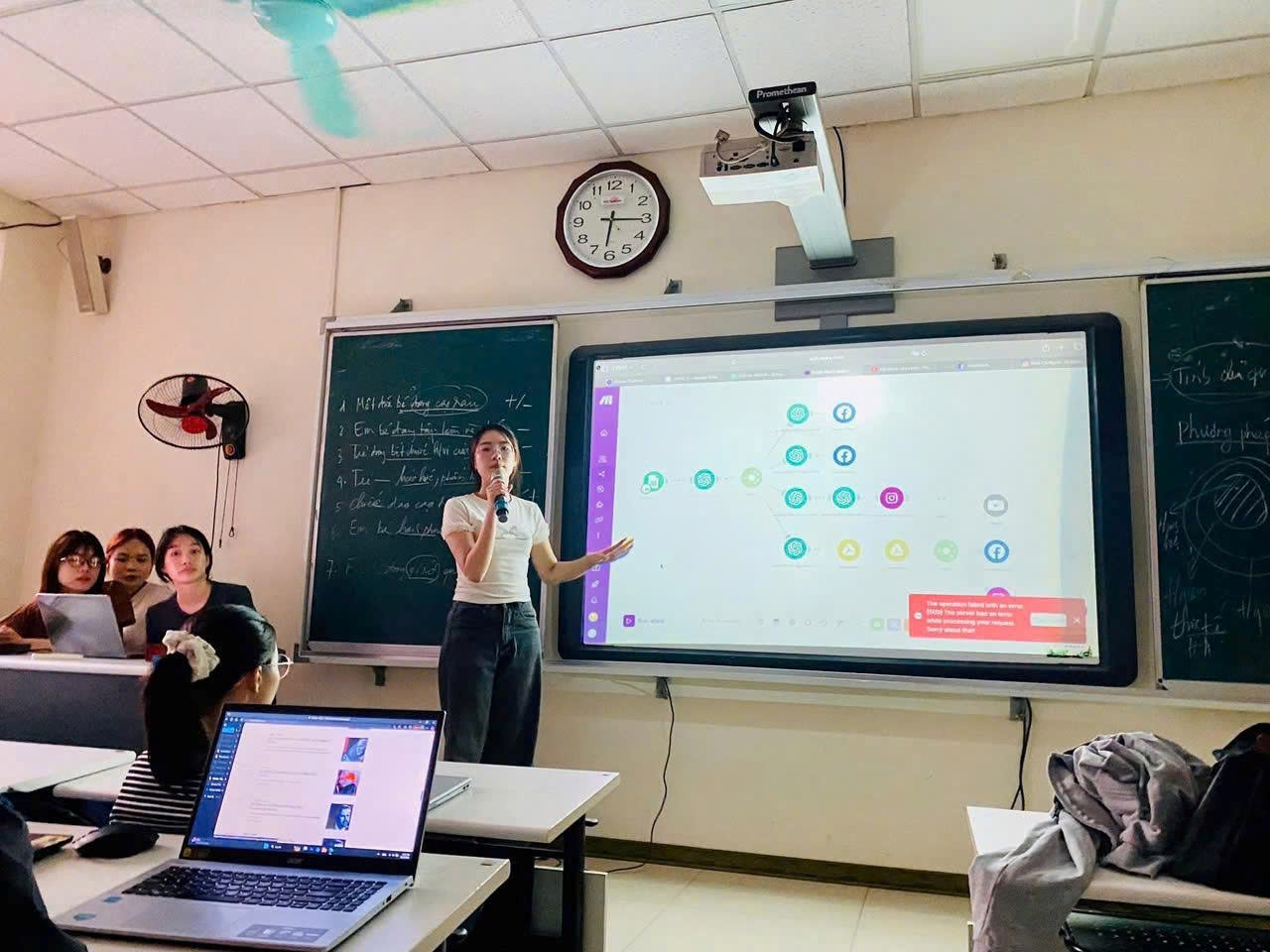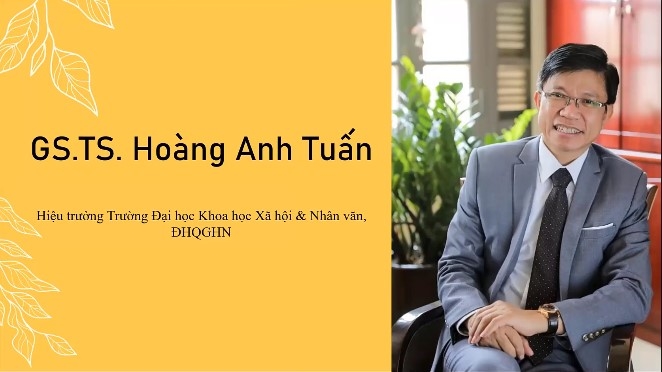Speaking about training journalistic personnel in the new era, Professor Hoang Anh Tuan, Rector of the University of Social Sciences and Humanities, Vietnam National University, Hanoi, emphasized: “It is necessary to focus on training generations of students about their responsibilities, mission, and career development orientation in the new era. Accordingly, they should learn technology but not forget humanities; master tools but not let tools replace thinking; constantly innovate but still maintain a heart that is honest with the truth, with the people, and with the noble mission of Vietnamese revolutionary journalism.”
Training "multitalented" journalists in the digital age.The field of journalism has expanded from a traditional model to a multi-platform approach, closely linked to digital technology, artificial intelligence, big data, and integrated media. This necessitates more flexible and comprehensive training than ever before.
Modern journalists need not only writing and editing skills but also proficiency in multimedia content production: filming, editing, sound processing, graphic design, creating content for social media, podcasts, short videos, livestreams, etc. We call them "multi-skilled journalists."
Besides skills, critical thinking, professional ethics, a sense of responsibility to the community, and the ability to adapt quickly to technology are mandatory elements in modern journalism training programs.
The Institute of Journalism and Communication Training – formerly the Faculty of Journalism of Hanoi University – is currently one of the most established journalism training institutions in Vietnam. With nearly 35 years of development, the Institute has trained over 10,000 bachelors and hundreds of masters and doctoral graduates in journalism and communication management.
The institute is implementing many comprehensive innovations: an integrated, interdisciplinary, and flexible training program, updating modern modules such as data journalism, digital content production, transnational communication, etc.
The modern practice space, including studios, editing rooms, drones, camera systems, and professional recording studios, allows students to experience the entire process of journalism in practice.
The teaching staff consists of high-quality lecturers, in collaboration with veteran journalists from VTV, VOV, VNA, Nhan Dan Newspaper, etc., to ensure practicality and professional depth in the teaching.
Business cooperation and internationalization, through strategic agreements with press agencies and media corporations, help expand internship, experience, and job opportunities. It can be said that, after 35 years of formation and development, the Institute of Journalism and Communication Training is creating a high-quality environment for journalism and communication education.
Turning challenges into opportunities: lean, yet insightful.Professor Hoang Anh Tuan stated that the Institute has been restructuring the journalism industry towards streamlining and professionalization, which is an inevitable trend. This forces training institutions in general, and the Institute of Journalism and Communication Training in particular, to focus on quality rather than quantity.
The job market now doesn't need a journalism graduate just for a degree. They need someone who can get the job done, is creative, adaptable, and possesses strong professional skills. That's why we focus on personalized development, helping students identify their unique strengths, build specialized professional competencies, and increase their competitiveness in the job market.
Professor Hoang Anh Tuan, Rector of the University of Social Sciences and Humanities, Vietnam National University, Hanoi
Professor Hoang Anh Tuan emphasized: The employment rate for Journalism and Communication students within one year of graduation remains at 92-95%, with over 60% working in their specialized field. Students possess strong professional skills and ethical standards, effectively meeting current market demands. Media and press companies highly value the school's students for their content creation abilities, teamwork skills, quick response to situations, and strong professional ethics. Furthermore, many students continue their studies at the postgraduate level, pursue further education abroad, or start businesses in the digital media industry, demonstrating the institute's solid and flexible training foundation.
Training future journalists: integrating technology while upholding human values.In the future, journalism training will be closely linked to fields such as information technology, big data, AI, AR/VR, marketing, political science, sociology, and especially global thinking.
Professor Hoang Anh Tuan believes that future journalists need technological skills – but their hearts must be humane. They need to learn how to master technology without losing their human integrity. AI can analyze data and suggest content, but it cannot replace responsibility for truth, courage, or the desire to serve society – the core qualities that make a revolutionary journalist.
Therefore, training cannot focus solely on instrumental skills, but must prioritize identity, mindset, and digital citizenship responsibility. This is what the University of Social Sciences and Humanities and the Institute of Journalism and Communication Training will continue to steadfastly pursue in the digital age.
Currently, the Institute of Journalism and Communication Training - Faculty of Social Sciences and Humanities (VNU Hanoi) is offering training in:
• 2 Bachelor's degree programs: Journalism, Public Relations
• Two master's programs: Journalism, Media and Communication Management
• 01 PhD program: Journalism
Related articles:
Institute of Journalism and Communication Training: 35 years of creation and innovation to be a pioneer.
Faculty and students of the Institute of Journalism and Communication Training jointly receive the National Journalism Award.


